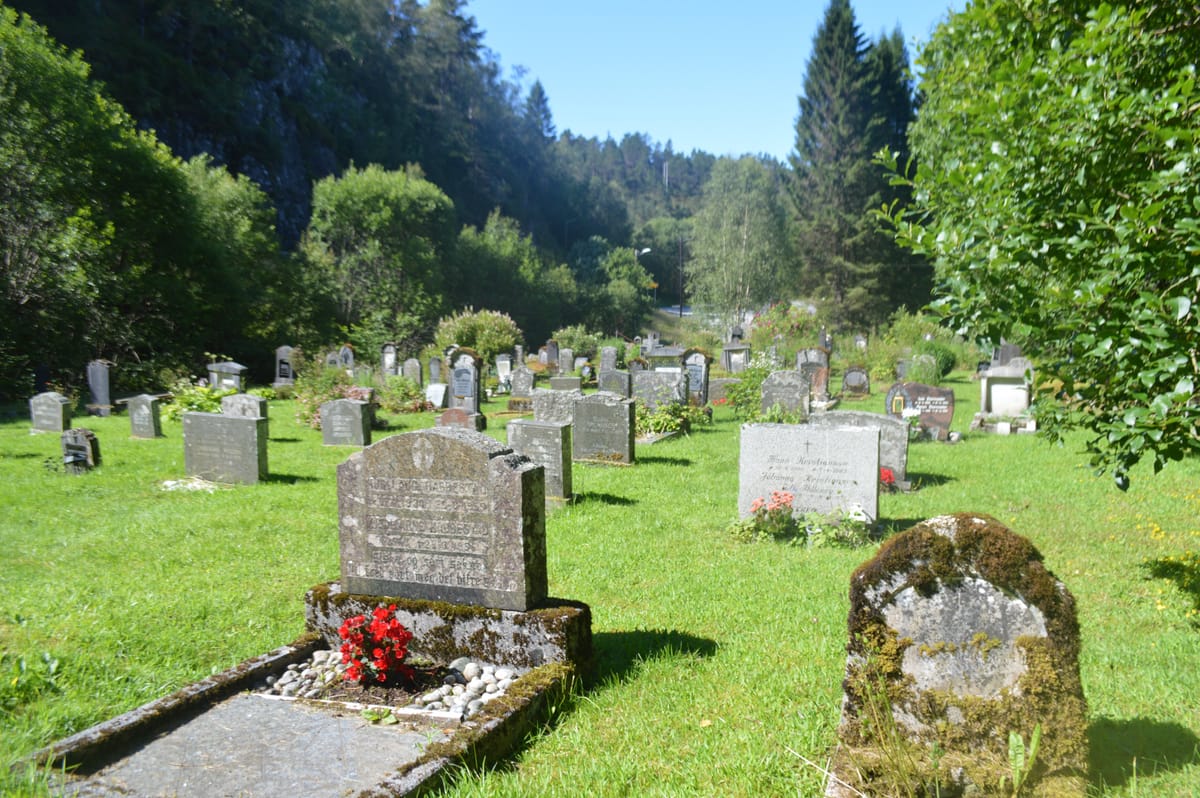On being a good ancestor
a question worth considering

What makes a good ancestor? We all share common ancestors, from the long line of humans who have survived, had kids, and repeated the process all the way to today. We can even go back further to biogenesis near a deepsea vent somewhere and the last universal common ancestor (LUCA). So, each of us has a debt of gratitude for the opportunities and lives we have today.
Recently, Leah and I were on a family trip to Norway, where we both trace ancestry (luckily, to different parts...). We were able to visit the locations that both of our families came from, and in the case of Leah’s we even found the house her family lived in where distant relatives of hers still live today. Wild!
So much of life is created by the actions of others. Whether it is where you’re born, how you’re raised, the culture you assimilate to, the food you eat, the clothes you wear, whether you start with money or not, etc, all flows from the work and decisions of others.
Norway between 1825-1925 saw 800,000 Norwegians move to the United States, primarily the upper midwest to seek land through the Homestead Act. Rural Norwegians especially had very little opportunity, and my and Leah’s family definitely fit this category.
My great great grandma, Rebekka Hermanson, left for North Dakota with her brother Herman, when she was 20 years old. I wish I knew how she felt at the time, and if she wanted to go. Either way, I am grateful she did. She met and married Knute Stokke in North Dakota, and four generations later I was born in Minnesota.
Rebekka (Hermanson) Stokke was a good ancestor. She left Bømlo island in western Norway for North Dakota in 1902, betting she and her family would have better economic prospects. It wasn’t a short journey, and there was much that was unfamiliar, but she figured it out.
Spending time in Norway made me think about this question more deeply. What are the qualities of a good ancestor? Here is what I have so far:
Move for economic opportunity
Moving from a poor area without opportunities (rural Norway 1902), to a poor area with opportunities (the Dakotas 1902) could not have been a comfortable decision. But the bet on going to where there are resources available (land) and the ability to create opportunity for yourself (through hard work, hardship, farming) helps improve life for the next generations. Sometimes the best thing you can do is to go where opportunities are, even if it is hard and unfamiliar.
Acquire land
Or, more generally put, create something that lasts. A canonical example from the 1800s US to today is land ownership and mineral rights. I am always jealous of hearing about “family land” and bonus points if it happens to be somewhere scenic. But for future generations maybe they’ll have wished their ancestors found durable ways to get passive exposure to the market via index funds or other structures. Wealth preservation across generations is fascinating to think about over long time horizons, and what will work now is almost certainly not what worked in the past. Of course, while you’re young the best strategy is to invest in your own skills and geographic mobility to grow future earnings.
Don’t gamble
Wealth preservation only works if you don’t squander it. Gambling, substance abuse, status games, excessive leverage, etc, can all screw things up.
Have kids
You need to have kids to be an ancestor. And then, you can try to follow the advice Tyler Cowen shared with me before Teddy was born: “don’t screw them up”. We are going to do our best.
Be a good person
This is the trickiest one, and important for reasons beyond being a good ancestor. The simplest distillation comes from the gospels (Matthew 22:36-39):
“Teacher, which is the greatest commandment in the Law?” Jesus replied: “‘Love the Lord your God with all your heart and with all your soul and with all your mind.’ This is the first and greatest commandment. And the second is like it: ‘Love your neighbor as yourself.’
Basically, get over yourself and treat others how you would want to be treated. I also recommend Michael Schur’s How to Be Perfect on audiobook for a fun summary of secular moral philosophy.
There seems to be something important about following one of the great moral traditions, instead of trying to develop your own theory of morality (look how weird things like effective altruism have gotten for example).
Consider the book of Judges in the Old Testament. It’s all about how generations tried to define their own way of doing good, and it royally screwed everything up because “everyone did what was right in his own eyes.” (Judges 17:6, 21:25, etc).
Or consider supervillains: Darth Vader (Star Wars), Bane (Batman), Scar (Lion King), Syndrome (The Incredibles), Thanos (Avengers), Bond villains (many). None of them consider themselves bad people, and in fact, they even consider themselves to be doing good, which allows them to justify their actions.
The implication here is that being good probably means anchoring yourself to moral principles that have stood the test of time, whether it’s religious tradition, philosophical frameworks, or communities of friends and family who can check your behavior. I don’t think good ancestors wing it on morality. And it matters because your choices and values impact future generations.
Work on problems of the day
Working on problems that matter creates progress. This point is probably very related to the first one. But it’s worth considering, is what you’re spending time on going to matter for the future? My best answers today are you’re very unlikely to regret working on carbon-free energy or artificial intelligence for the common good (waiting on Pope Leo XIV’s rerum 2.0 to help guide everybody on the latter).
Leave footprints
Looking back can help us look forward. But we can only learn from those who came before us if they leave us something to find – whether that's a photograph, a place, books, stories, or family traditions.
So where does that leave us? My current list of qualities that make a good ancestor are:
- Move for economic opportunity
- Acquire and preserve wealth
- Don’t gamble
- Have kids
- Be a good person
- Work on problems of the day
- Leave footprints
What do you think?
Thanks to my family, Chase, Elliott, and Conor for helping me think through this


